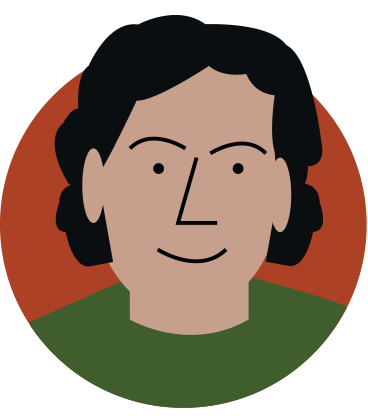
Ian
52, sleeping badly for 3–5 years
Recent personal problems had left Ian feeling lost and unsure how to get his life back on track. He suspected that his poor sleep could be the root cause of many issues he faced in his daily life, so he decided to take a leap of faith and signed up online to our digital sleep therapy.
To get started, Ian was asked to complete a simple task: to keep a log of how he was sleeping each night, for a week. This review week provides a window into someone’s current sleep, highlighting where their sleep difficulties may be stemming from.
Average sleep time per night
Before Sleepstation
3h 56m
After Sleepstation
6h 26m
During this week, Ian also answered questions about how he was feeling, what impact his poor sleep was having on his life in general and what he hoped to achieve through his sleep therapy.
Ian’s sleep diaries revealed that he was only managing to sleep for 51% of the time he was in bed. This meant that he was spending almost half of his time in bed wide awake and equated to a very poor sleep efficiency.
Sleep efficiency
Before Sleepstation
51%
After Sleepstation
99%
On average, he was getting just under four hours of sleep each night and was experiencing a severe impairment in his ability to function during the day. He told us that he felt constantly overwhelmed at the slightest obstacle and hoped that improving his sleep would help him to deal with what life threw at him. He also reported symptoms of moderate anxiety and depression.
All this information was crucial to personalising Ian’s sleep improvement plan specifically to him. He received a new sleep schedule to follow, that would change and adapt to his needs throughout his therapy, plus access to weekly therapy sessions and a library of resources on sleep.
Ian began following his new sleep schedule and, although he found it slightly daunting at first, he felt that having the support of his sleep coaches provided the reassurance he needed to really get to grips with the process.
Before Sleepstation
- 13/27 Depression symptoms – Moderate
- 12/21 Anxiety symptoms – Moderate
After Sleepstation
- 3/27 Depression symptoms – Minimal
- 1/21 Anxiety symptoms – Minimal
He took on board all the advice he was given by the sleep team, quickly identifying behaviours that might be negatively affecting his sleep and implementing changes to help improve his sleep. Ian was also guided to discover techniques that could help reduce how long he was awake in bed at night, gaining skills in how to manage his racing thoughts and relax in preparation for sleep at night.
He began to see his sleep improve and noted how things in his daily life that would have previously felt like big problems began to feel more manageable once he started to get good sleep. Ian trusted the process and through his commitment, he’s really turned his sleep around.
Ian’s long periods of wakefulness during the night are now a thing of the past and he’s gained an extra two and a half hours of sleep per night. This equates to a fantastic 17 and a half hours of additional sleep per week!
On top of these superb results, Ian’s also seen his mood improve dramatically. He reports only minimal symptoms of depression and anxiety and the previously severe impairment in his next day functioning is now only low.
Impact on next day function
We use the Work and Social Adjustment Scale (WSAS) to assess how a person’s sleep problem affects them day to day. These scores are reviewed at assessment and weekly throughout therapy.
WSAS score
Before
24/40 – Severe impairment
After
6/40 – Low impairment
Ian really put his all into his sleep therapy and we’re so pleased to have been able to help him break the cycle of poor sleep and get back to sleeping soundly each night. Well done Ian!
I think the support element of the process is crucial and very good, being connected to a real person makes it seem a lot less daunting than a faceless online course would have done. Thank you to your team for helping me so far!
